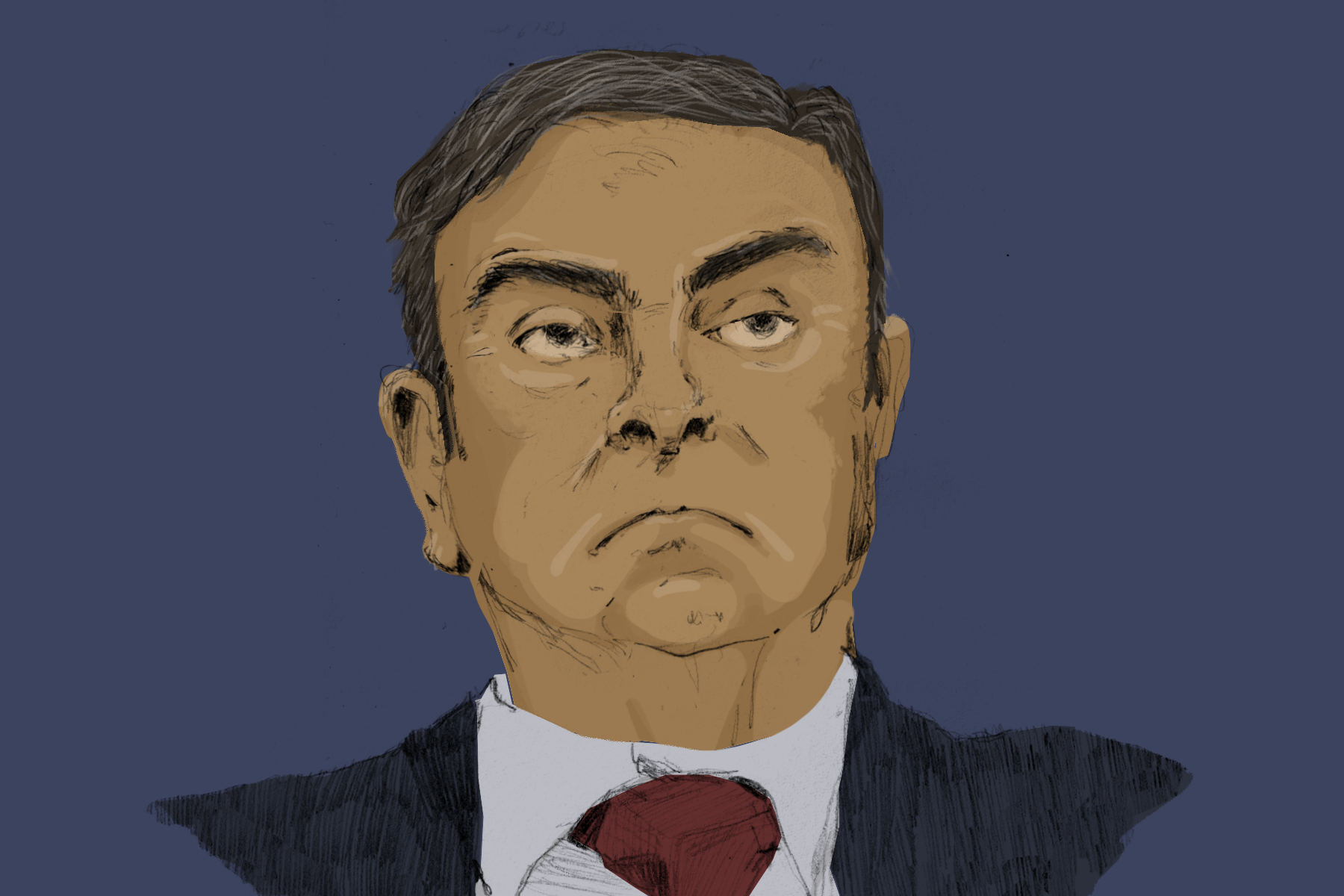A new sub-genre of documentary has emerged and appears to be fueled by Netflix’s desperate attempt to justify their constant price hikes and crackdowns on password sharing. This sub-genre can be dubbed “The Obvious Consequences of People Being Given Far More Money Than Any Human Being Should Have.” But that’s probably too long: let’s shorten it to “Billionaires Behaving Badly.” Netflix’s newest release in this genre is “Fugitive: The Curious Case of Carlos Ghosn,” which chronicles the story of a wealthy car executive whose fall from the top culminates in his being smuggled out of Japan in an instrument case. When choosing this movie, one may ask themselves, “Why should I care about this story?” And 95 unrecoverable minutes later, the question is left unanswered.
Like most Netflix releases, “Fugitive” features expert production, great segues and a story told with the perfect combination of truth and dramatic flair. There are select interviews from people who participated in the production and a fictional character created to be an amalgamation of the people involved who refused to appear in the documentary. There don’t appear to be any credibility issues, and Netflix presents minute details from different perspectives so there is no obvious bias. The documentary covers multiple tales and anecdotes, allowing viewers to get a holistic view of a complex situation.
Nonetheless, after sifting through the drama this tale encompasses, viewers walk away from the film asking, “So what?”
The film begins with the rise of Carlos Ghosn as he vaults to the top of the French car manufacturing firm, Renault. After becoming incredibly successful (mostly by laying off thousands of workers), Ghosn uses Renault to strike a deal with the Japanese car manufacturer, Nissan. He transforms the company into another massive success (again by laying off thousands of workers), which leads to his popularization in Japanese culture and even the creation of a manga based on his life; a notable milestone in Japanese pop culture hero worship. But Ghosn quickly falls from hero to villain, a perhaps more appropriate cliché.
The Japanese public reigns down scrutiny on Ghosn after learning that his salary is seven times that of Toyota’s CEO. In response to this criticism, Ghosn doubles down and excuses his salary by citing his success in taking Nissan from bankruptcy to profitability. As Nissan and Renault’s workers are threatened with layoffs and overworked to the point of suicide, Ghosn maintains that he is the reason the company is so successful.
His terrible behavior reaches its pinnacle when Ghosn hosts the 15th anniversary of the Renault/Nissan alliance on his birthday rather than the actual date of the merger (which was three weeks later). More absentmindedly, he invites his personal friends and not the executives of Renault or Nissan. Where is the bash hosted, you ask? Versailles, the famed palace where the obnoxiously rich Louis XVI and Marie Antionette fell from grace after financial villainy.
While this is not at all surprising considering the repeated and universally expected wrongdoings of billionaires such as Ghosn, it came as a shock to the Japanese community, and investigations into Ghosn began shortly afterward. The documentary insinuates that a coordinated effort between Nissan and the Japanese prosecutor’s office led to Ghosn’s arrest right after he landed in Japan, where he was held in prison without bail. Prosecutors did not specify whether there was any evidence of criminal activity, but the film implies that Ghosn embezzled money or, at the very least, misappropriated funds from both Renault and Nissan. In its last 20 minutes, the documentary reveals that Ghosn was released on house arrest, smuggled out of the country in a subwoofer case, and returned to his native Lebanon. For a documentary titled “Fugitive,” very little screen time is dedicated to his escape.
Why is any of this relevant? It’s not.
It’s billionaires behaving badly: an infuriating trope in the real world and a trite one on-screen. The final seconds of the film further solidify the trope by offering textual follow-ups to some of the players involved. Unsurprisingly, most of the Ghosn-adjacent people in Renault and Nissan served time for their involvement in his embezzlement plot. Currently, Ghosn is wanted in Japan, France and by Interpol. All the while he claims innocence, sequestered in Lebanon, free from answering the charges brought against him.
Most viewers will never see the amount of wealth that Ghosn managed in their lifetime, so the film provides no obvious takeaway or moral. If nothing else, the film offers a nuanced critique of international approaches to crime and punishment. Acceptable behavior in one country is punishable by years in prison in another. However, Ghosn is wanted internationally, so perhaps chalking it all up to cultural relativism is beside the point.

















